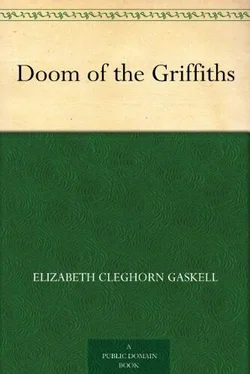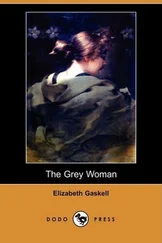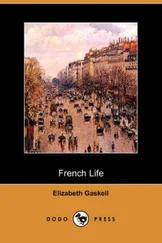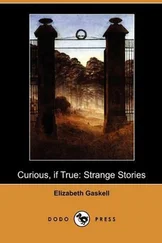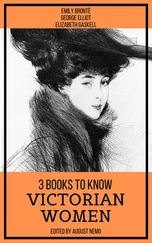The days drifted onward. Often he would vehemently pursue some sylvan sport, till thought and feeling were lost in the violence of bodily exertion. Occasionally his evenings were spent at a small public-house, such as stood by the unfrequented wayside, where the welcome, hearty, though bought, seemed so strongly to contrast with the gloomy negligence of home — unsympathising home.
One evening (Owen might be four or five-and-twenty), wearied with a day's shooting on the Clenneny Moors, he passed by the open door of "The Goat" at Penmorfa. The light and the cheeriness within tempted him, poor self-exhausted man! as it has done many a one more wretched in worldly circumstances, to step in, and take his evening meal where at least his presence was of some consequence. It was a busy day in that little hostel. A flock of sheep, amounting to some hundreds, had arrived at Penmorfa, on their road to England, and thronged the space before the house. Inside was the shrewd, kind-hearted hostess, bustling to and fro, with merry greetings for every tired drover who was to pass the night in her house, while the sheep were penned in a field close by. Ever and anon, she kept attending to the second crowd of guests, who were celebrating a rural wedding in her house. It was busy work to Martha Thomas, yet her smile never flagged; and when Owen Griffiths had finished his evening meal she was there, ready with a hope that it had done him good, and was to his mind, and a word of intelligence that the wedding-folk were about to dance in the kitchen, and the harper was the famous Edward of Corwen.
Owen, partly from good-natured compliance with his hostess's implied wish, and partly from curiosity, lounged to the passage which led to the kitchen — not the every-day, working, cooking kitchen, which was behind, but a good-sized room, where the mistress sat, when her work was done, and where the country people were commonly entertained at such merry-makings as the present. The lintels of the door formed a frame for the animated picture which Owen saw within, as he leaned against the wall in the dark passage. The red light of the fire, with every now and then a falling piece of turf sending forth a fresh blaze, shone full upon four young men who were dancing a measure something like a Scotch reel, keeping admirable time in their rapid movements to the capital tune the harper was playing. They had their hats on when Owen first took his stand, but as they grew more and more animated they flung them away, and presently their shoes were kicked off with like disregard to the spot where they might happen to alight. Shouts of applause followed any remarkable exertion of agility, in which each seemed to try to excel his companions. At length, wearied and exhausted, they sat down, and the harper gradually changed to one of those wild, inspiring national airs for which he was so famous. The thronged audience sat earnest and breathless, and you might have heard a pin drop, except when some maiden passed hurriedly, with flaring candle and busy look, through to the real kitchen beyond. When he had finished his beautiful theme on "The March of the men of Harlech," he changed the measure again to "Tri chant o' bunnan" (Three hundred pounds), and immediately a most unmusical-looking man began chanting "Pennillion," or a sort of recitative stanzas, which were soon taken up by another, and this amusement lasted so long that Owen grew weary, and was thinking of retreating from his post by the door, when some little bustle was occasioned, on the opposite side of the room, by the entrance of a middle-aged man, and a young girl, apparently his daughter. The man advanced to the bench occupied by the seniors of the party, who welcomed him with the usual pretty Welsh greeting, "Pa sut mae dy galon?" ("How is thy heart?") and drinking his health passed on to him the cup of excellent cwrw. The girl, evidently a village belle, was as warmly greeted by the young men, while the girls eyed her rather askance with a half-jealous look, which Owen set down to the score of her extreme prettiness. Like most Welsh women, she was of middle size as to height, but beautifully made, with the most perfect yet delicate roundness in every limb. Her little mob-cap was carefully adjusted to a face which was excessively pretty, though it never could be called handsome. It also was round, with the slightest tendency to the oval shape, richly coloured, though somewhat olive in complexion, with dimples in cheek and chin, and the most scarlet lips Owen had ever seen, that were too short to meet over the small pearly teeth. The nose was the most defective feature; but the eyes were splendid. They were so long, so lustrous, yet at times so very soft under their thick fringe of eyelash! The nut-brown hair was carefully braided beneath the border of delicate lace: it was evident the little village beauty knew how to make the most of all her attractions, for the gay colours which were displayed in her neckerchief were in complete harmony with the complexion.
Owen was much attracted, while yet he was amused, by the evident coquetry the girl displayed, collecting around her a whole bevy of young fellows, for each of whom she seemed to have some gay speech, some attractive look or action. In a few minutes young Griffiths of Bodowen was at her side, brought thither by a variety of idle motives, and as her undivided attention was given to the Welsh heir, her admirers, one by one, dropped off, to seat themselves by some less fascinating but more attentive fair one. The more Owen conversed with the girl, the more he was taken; she had more wit and talent than he had fancied possible; a self-abandon and thoughtfulness, to boot, that seemed full of charms; and then her voice was so clear and sweet, and her actions so full of grace, that Owen was fascinated before he was well aware, and kept looking into her bright, blushing face, till her uplifted flashing eye fell beneath his earnest gaze.
While it thus happened that they were silent — she from confusion at the unexpected warmth of his admiration, he from an unconsciousness of anything but the beautiful changes in her flexile countenance — the man whom Owen took for her father came up and addressed some observation to his daughter, from whence he glided into some commonplace though respectful remark to Owen, and at length engaging him in some slight, local conversation, he led the way to the account of a spot on the peninsula of Penthryn, where teal abounded, and concluded with begging Owen to allow him to show him the exact place, saying that whenever the young Squire felt so inclined, if he would honour him by a call at his house, he would take him across in his boat. While Owen listened, his attention was not so much absorbed as to be unaware that the little beauty at his side was refusing one or two who endeavoured to draw her from her place by invitations to dance. Flattered by his own construction of her refusals, he again directed all his attention to her, till she was called away by her father, who was leaving the scene of festivity. Before he left he reminded Owen of his promise, and added –
"Perhaps, sir, you do not know me. My name is Ellis Pritchard, and I live at Ty Glas, on this side of Moel Gest; anyone can point it out to you."
When the father and daughter had left, Owen slowly prepared for his ride home; but encountering the hostess, he could not resist asking a few questions relative to Ellis Pritchard and his pretty daughter. She answered shortly but respectfully, and then said, rather hesitatingly —
"Master Griffiths, you know the triad, 'Tri pheth tebyg y naill i'r llall, ysgnbwr heb yd, mail deg heb ddiawd, a merch deg heb ei geirda' (Three things are alike: a fine barn without corn, a fine cup without drink, a fine woman without her reputation)." She hastily quitted him, and Owen rode slowly to his unhappy home.
Читать дальше
